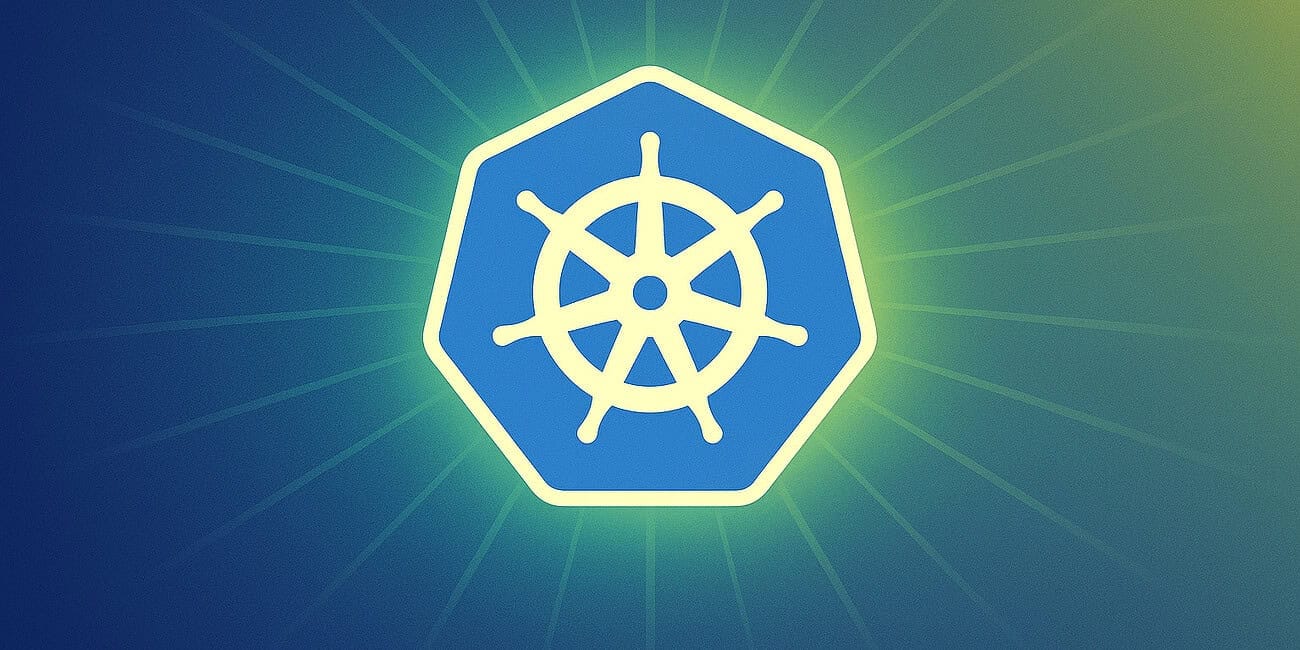Last Updated on 30/04/2025 by CloudRank
Managed Kubernetes services simplify the deployment and management of Kubernetes clusters by automating critical tasks. These services remove the operational responsibility from businesses, allowing them to focus on application development rather than infrastructure management.
The Role of Automation in Managed Services
Automation is at the heart of managed Kubernetes services. By utilising automation, businesses can significantly reduce manual interventions, leading to fewer human errors and more efficient operations. Automated updates ensure that systems are always running the most recent versions, which are crucial for security and performance. Additionally, automated scaling allows businesses to dynamically adjust resources, optimising costs and ensuring that applications perform well under varying loads.
Reduction in Operational Load
Managed Kubernetes services free businesses from the complexities of managing control planes and infrastructure. These services handle the setup, configuration, and maintenance, allowing IT teams to redirect their focus towards enhancing application features and user experiences. This shift in focus from infrastructure to innovation can lead to a quicker time-to-market for new applications and features, thus providing a competitive edge. As businesses increasingly adopt managed Kubernetes in 2025, integration with advanced tools and platforms will become essential for maximizing productivity and efficiency. This evolution will further enable organizations to leverage automation and scalability, making it easier to accommodate changing demands and improve resource allocation. Ultimately, these enhancements will empower teams to innovate more rapidly and respond to market shifts with agility.
Focus on Application Development
By adopting managed Kubernetes services, developers can concentrate on writing code and developing applications rather than worrying about the underlying infrastructure. This focus enables teams to be more agile, fostering an environment of continuous integration and continual delivery (CI/CD). Furthermore, developers can utilise the extensive ecosystems provided by these managed services to integrate additional functionalities and enhance application capabilities seamlessly.
Key Features of Managed Kubernetes Services
Managed Kubernetes services typically offer several key elements that enhance their usability and effectiveness in cloud environments.
Automated Scaling
Automated scaling is a crucial feature of managed Kubernetes services, providing dynamic resource allocation based on workload demands. This ability ensures that applications have the resources they need during peak usage times whilst minimising costs during off-peak periods. With automated scaling, businesses can maintain optimal performance without manual intervention, leading to a more responsive and cost-effective infrastructure.
High Availability and Redundancy
High availability is critical for businesses that require their applications to be accessible at all times. Managed Kubernetes services achieve this through redundancy and failover mechanisms, ensuring minimal downtime even in the event of hardware failures.
These services frequently offer multi-zone or multi-region deployments, offering additional tiers of reliability and disaster recovery abilities, which are essential for mission-critical applications.
Integrated Security Features
Security is a top priority in cloud environments, and managed Kubernetes services arrive equipped with integrated security features. Role-based access control (RBAC) and automatic security updates are standard offerings that aid in protecting sensitive data and maintaining compliance with industry regulations. What’s more, these services commonly provide encryption at rest and in transit, safeguarding data integrity and confidentiality.
Monitoring and Logging Capabilities
Comprehensive monitoring and logging tools are paramount for maintaining the health and performance of Kubernetes clusters. Managed services propose built-in solutions that offer real-time insights into cluster performance, enabling proactive management and troubleshooting.
These tools assist in identifying potential issues before they impact users, and comprehensive logs support root-cause analysis and compliance reporting.
Seamless Cloud Ecosystem Integration
Managed Kubernetes services are devised to integrate seamlessly with the broader cloud ecosystem offered by each provider. This integration permits businesses to utilise additional services, such as databases, machine learning, and analytics, to enhance their applications. It also simplifies the management of resources across different services, crafting a cohesive and streamlined cloud environment.
Top Managed Kubernetes Providers
In the realm of managed Kubernetes services, several providers stand out owing to their robust features and capabilities.
Amazon Elastic Kubernetes Service (EKS)
Amazon EKS provides a fully managed Kubernetes service that simplifies running Kubernetes on AWS without needing to install and operate your own Kubernetes control plane or nodes.
AWS Integration and Ecosystem
Amazon EKS is deeply integrated with AWS’s suite of services, offering seamless connectivity and functionality enhancements. This integration allows users to leverage AWS tools like IAM for access management, VPC for networking, and CloudWatch for monitoring. Such deep integration simplifies the deployment of comprehensive cloud solutions and enhances operational efficiencies.
Scalability and Infrastructure
With EKS, businesses can harness the power of AWS’s robust infrastructure, ensuring seamless scalability to meet varying workload demands.
(Note: The given text did not have any American English exclusives which needed translating to British English.)
This capability is particularly beneficial for businesses experiencing rapid growth or fluctuating demand, as it enables them to scale resources up or down efficiently, maintaining performance without incurring unnecessary costs.
Security and Compliance
Security is a strong area for Amazon EKS, which provides fine-grained access controls through IAM roles and integration with AWS security services. These features ensure that sensitive data is protected and compliance requirements are met, making EKS a suitable choice for industries with stringent regulatory standards.
Limitations
Cost Considerations
Whilst Amazon EKS offers robust features, its cost can be prohibitive, especially for small to medium-sized businesses or those with limited workloads. The pricing structure, which includes costs for clusters, nodes, and additional services, can quickly add up, necessitating careful cost management and planning.
Complexity for Beginners
For users new to AWS or cloud technologies in general, the initial setup and configuration of EKS can be complex. The learning curve may be steep, necessitating time and resources to fully comprehend and utilise the platform’s capabilities, which can delay implementation and increase the time to value.
Google Kubernetes Engine (GKE)
Google Kubernetes Engine is known for its robust and efficient management of Kubernetes clusters, backed by the powerful infrastructure of Google Cloud.
Performance Optimisation
GKE is optimised for high performance, offering low latency and efficient resource utilisation. This optimisation is achieved through Google’s high-speed network and advanced resource management capabilities, making GKE an excellent choice for applications requiring high throughput and minimal latency.
AI and ML Integration
One of GKE’s standout features is its seamless integration with Google Cloud’s AI and ML services.
This integration facilitates rapid development and deployment of AI applications, equipping businesses with the tools necessary to innovate and remain competitive within the rapidly evolving AI landscape.
User-Friendly Interface
GKE provides a user-friendly setup process along with an intuitive interface, making it accessible to users of all skill levels. This ease of use minimises the time and effort required to get started with Kubernetes, allowing businesses to concentrate on developing and deploying applications swiftly.
Limitations
Regional Availability Constraints
Whilst GKE offers a plethora of powerful features, some of them might be limited to specific regions. These regional availability constraints can impact businesses operating in locations where certain features are not supported, necessitating careful planning and consideration.
Vendor Lock-in Risks
Deep integration with Google Cloud services, although beneficial, can also foster dependencies that lead to vendor lock-in.
Businesses must evaluate these dependencies carefully to ensure flexibility and avoid challenges associated with migrating to other platforms in the future.
Azure Kubernetes Service (AKS)
Azure Kubernetes Service provides a managed Kubernetes solution that is deeply integrated with Microsoft’s cloud ecosystem.
Azure Ecosystem Integration
AKS offers seamless integration with Azure services such as Azure Active Directory and Azure DevOps, providing a cohesive cloud experience. This integration simplifies identity management, CI/CD processes, and resource management, making it an appealing choice for businesses already utilising Azure’s ecosystem.
Developer Tools and Support
AKS is known for its robust developer tools and support, which enhance productivity and streamline application development. The platform provides extensive documentation, developer communities, and support resources, ensuring that developers have the tools they need to succeed.
Compliance and Security
Azure’s commitment to compliance is evident in AKS, which meets a broad array of compliance standards necessary for businesses across diverse sectors. Additionally, Azure Security Centre integration provides comprehensive security management, helping companies protect their data and maintain regulatory compliance.
Limitations
Learning Curve for New Users
For users unfamiliar with Azure or cloud technologies, AKS may present a steep learning curve. Understanding the platform’s features and capabilities requires time and effort, which can affect the pace of implementation and the realisation of benefits.
Performance Variability
Some users have reported intermittent performance issues with AKS, which can affect the reliability of applications. These performance inconsistencies necessitate proactive monitoring and management to ensure that applications remain responsive and meet user expectations.
Performance and Cost Comparison
When choosing a managed Kubernetes service, both performance and cost are crucial considerations. Below, we analyse the performance metrics and cost structures of the top providers.
Performance Metrics
Latency and Throughput
GKE often leads in terms of low latency and high throughput, attributed to Google’s high-speed network. This performance advantage makes GKE an ideal choice for latency-sensitive applications, such as real-time data processing and gaming.
Resource Management and Autoscaling
While EKS and AKS provide robust resource management, GKE’s autoscaling capabilities are often highlighted as superior. GKE’s ability to automatically adjust resources based on real-time demand ensures optimal performance and cost efficiency, providing businesses with a flexible and responsive cloud environment.
Reliability and Uptime
High availability is a critical metric for evaluating managed Kubernetes services. All three providers offer robust redundancy and failover mechanisms, ensuring minimal downtime. However, the choice between them often depends on specific uptime guarantees and regional availability, which can differ among providers.
Cost Analysis
Amazon EKS Pricing Structure
Amazon EKS’s pricing is based on the number of clusters and nodes, with additional charges for data transfer and storage. This structure requires careful planning to manage expenses effectively, particularly for businesses with fluctuating workloads or those scaling up swiftly.
Google Kubernetes Engine Fees
GKE incurs a management fee per cluster along with standard VM pricing, which can be more predictable for businesses with consistent workloads. This pricing model provides transparency and enables businesses to estimate costs more accurately, assisting in budget planning and management.
Azure Kubernetes Service Cost-Effectiveness
Azure Kubernetes Service is generally more cost-effective for enterprises already using Azure services, offering competitive pricing models. These models often include discounts for existing Azure customers, making AKS an alluring option for businesses aiming to consolidate their cloud expenditure.
Security Considerations
In any managed Kubernetes environment, security is paramount. Each provider offers unique security features designed to safeguard data and maintain compliance.
Amazon EKS Security Features
EKS features include IAM roles for service accounts and integration with AWS security services, providing robust access management and data protection. These features ensure that sensitive information is protected and compliance requirements are met, which is crucial for industries with strict regulatory standards.
Google Kubernetes Engine Security Controls
GKE provides advanced security controls such as Binary Authorisation and Shielded Nodes, which help protect applications from unauthorised changes and attacks. These controls, combined with Google’s security infrastructure, offer a comprehensive security solution for businesses operating in the cloud.
Azure Kubernetes Service Security Management
AKS offers Azure Security Centre integration, providing comprehensive security management and threat detection capabilities. This integration allows businesses to monitor security in real-time, identify potential threats, and take proactive measures to protect their applications and data.
Real-world Use Cases and Examples
Case Study: EKS in a Fintech Start-up
A fintech start-up utilised Amazon EKS to manage their microservices architecture, benefitting from AWS’s robust security and compliance features, which were crucial for handling sensitive financial data. The start-up was able to scale efficiently, ensuring that their applications remained performant and secure as their user base grew.
Case Study: GKE for AI/ML Applications
A machine learning company utilised GKE for its seamless integration with Google’s AI services, enabling rapid model training and deployment. This integration allowed the company to innovate quickly, developing new AI models and features that provided a competitive edge in the marketplace.
Case Study: AKS in a Global Enterprise
A global enterprise adopted AKS to integrate seamlessly with their existing Azure infrastructure, allowing for a unified cloud strategy across their development teams.
This integration streamlined operations, improved collaboration, and provided a consistent development environment across the organisation.
Conclusion and Recommendations
Choosing the right managed Kubernetes service depends on your organisation’s specific needs, existing cloud infrastructure, and budget constraints. Here are some recommendations:
For AWS-Centric Organisations
Amazon EKS offers the best integration with AWS services, making it a logical choice for businesses already leveraging AWS. Its robust security features and scalability make it suitable for applications requiring high levels of reliability and compliance.
For AI/ML-Focused Companies
Google Kubernetes Engine provides unparalleled performance and integration with AI services, making it the best choice for businesses focused on artificial intelligence and machine learning.
Its advanced features and performance optimisation ensure that AI applications run efficiently and effectively.
For Enterprises Already Using Azure
Azure Kubernetes Service will seamlessly integrate with existing resources, offering a cohesive cloud experience. Its integration with Azure’s ecosystem and competitive pricing models make it an ideal choice for businesses looking to consolidate their cloud infrastructure and reduce costs.
In conclusion, managed Kubernetes services provide a powerful solution for container orchestration, enabling businesses to focus on innovation rather than infrastructure management. By understanding the unique features, advantages, and limitations of each provider, you can make an informed decision that aligns with your strategic objectives.










